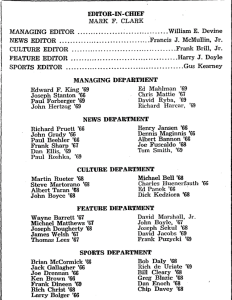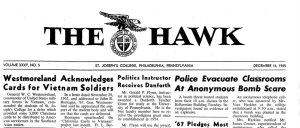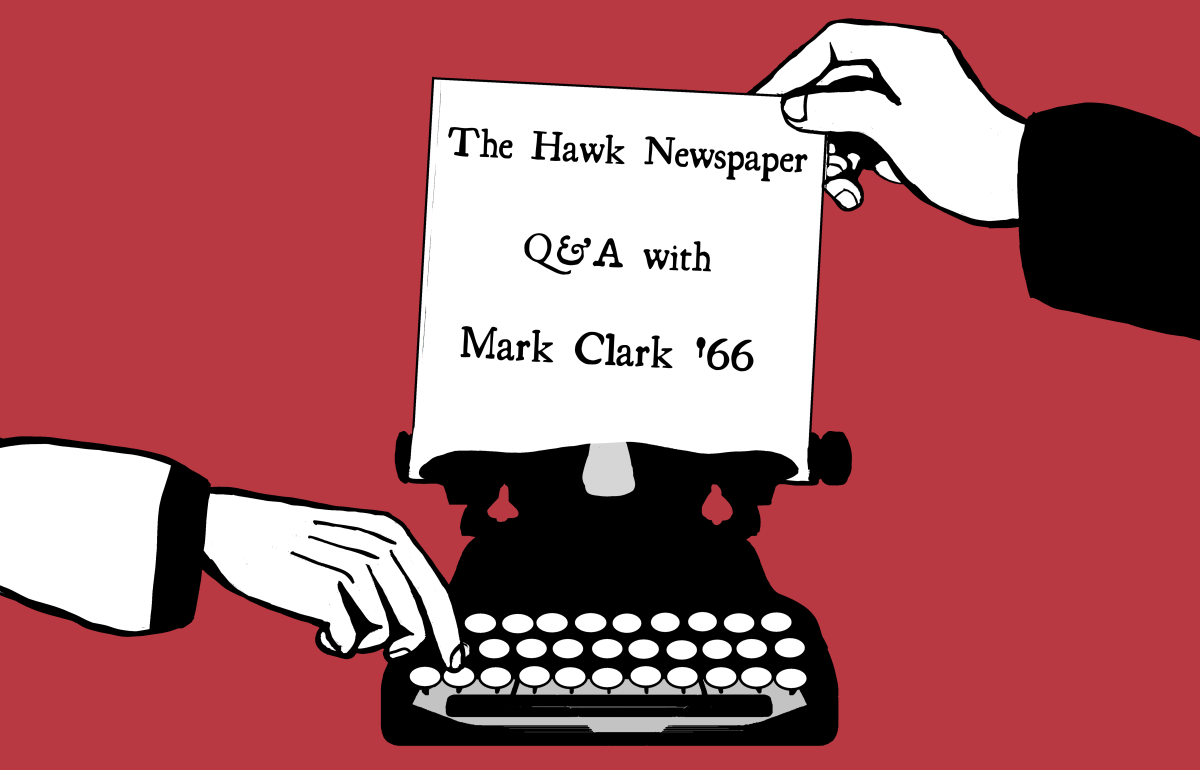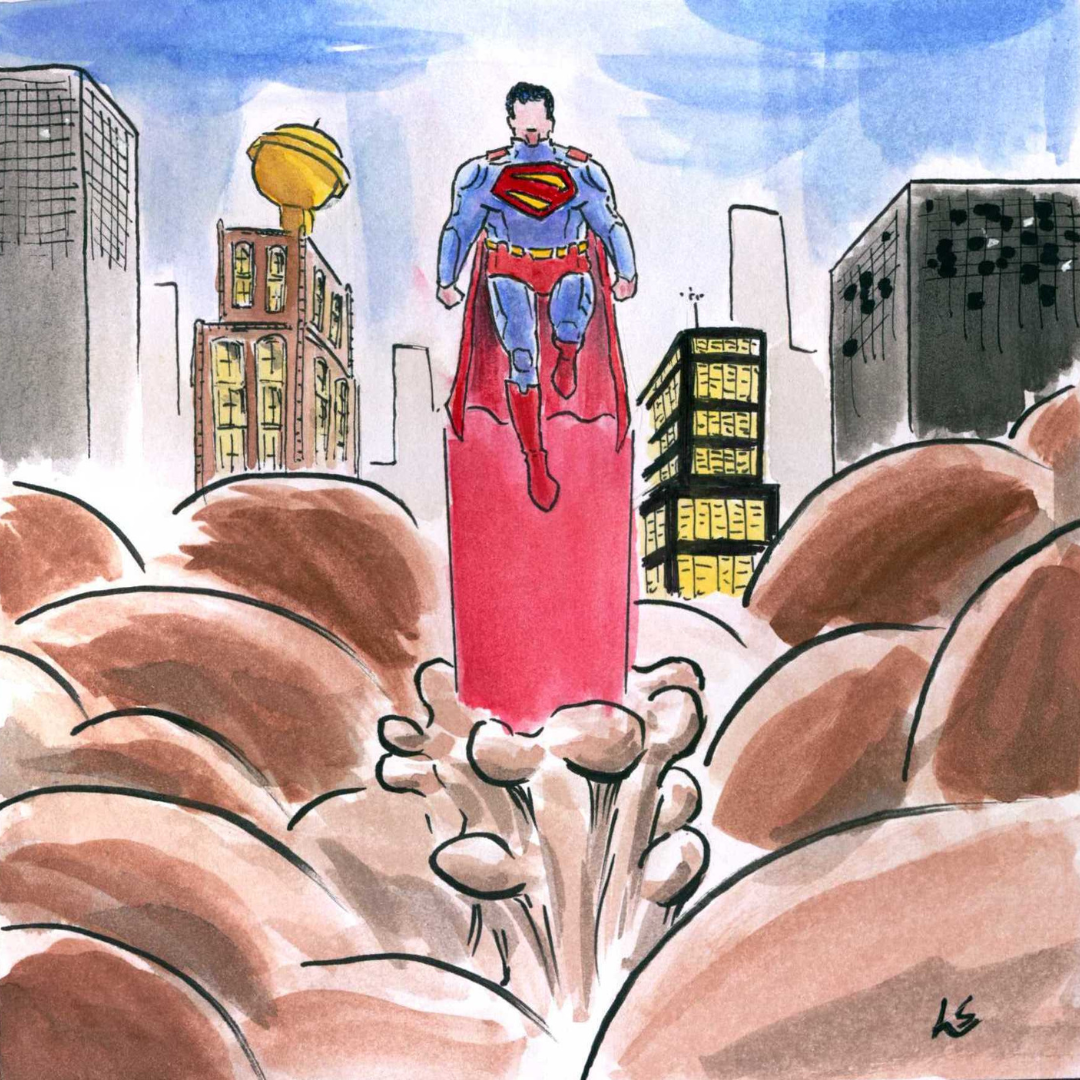This week, Mark Clark ’66, former Editor in Chief of The Hawk Newspaper, spoke with The Hawk about being Editor in Chief more than 50 years ago, his time serving in the Vietnam War, how he ended up in a press briefing in the Oval Office and how one of his staffers went on to write ‘the Bible’ on U.S. President Donald Trump.
How did The Hawk operate during your time as Editor in Chief?
It was published every other week. We did have a robust and rich staff. At that point it was all men, the college at the time was not integrated. We had a sports department, cultural review and news. We were in the basement level of the original Barbelin building. It was not a massive space. We had room for several desks, where people could operate their typewriters. We would put together and lay out the paper. Of course, that was all manual. We would burn those stories into a printer who was not far from campus.
We had a very talented staff, up and down the line with the various section editors and writers and reporters. We took pride in it.
Obviously, we weren’t furnishing very timely news, but we did have room for a lot of commentary, and let’s say, push back against the administration. We became a sort of a sounding board for pushback. I wouldn’t say we were rebels, necessarily, but there was a lot of turmoil, with giving the administration some pushback.
What careers did former members of your Hawk staff pursue?
Wayne Barrett came up from Lynchburg, Virginia. I think probably while he was at St. Joe’s, he had an epiphany about his political interest. Wayne went on to New York City. He went to work for the Village Voice and he was an investigative reporter for 30 or 40 years.
He became the go-to guy for information about Donald Trump. Wayne Barrett was the author of a definitive book about the early years of Donald Trump in New York City, [Trump: The Deals and the Downfall]. It was ‘the Bible’ about Donald Trump.
While he was at St. Joe’s, he was one of our star writers, and it prefigured the same talent that he would [carry] as a professional.
What was your career like after The Hawk?
When I finished at St. Joe’s, it was the height of the Vietnam War. I was anxious not to go. So I applied to the Medill School of Journalism at Northwestern [University], and I was accepted in several places, but I decided I would go to Northwestern.

My major was radio and TV because I wanted to be an intern in Washington [D.C], and to do that, I couldn’t major in newspapers or magazines.
I went on to work for the Chicago American. I was hired by this fellow who was a faculty member of the Northwestern Medill school.
I went to work on the Sunday edition of the Chicago American, and was there for about six months and then I got drafted. I was sent off to Vietnam.
I was expecting to be a first, or a second lieutenant, leading a platoon of soldiers in the jungle. However, I was an information officer, which was a great relief to me because I was petrified that I was going to be out in the jungle getting shot at. We were in a place that got a lot of shelling from outside. And several of my colleagues, fellow army people, enlisted and officers, lost their lives while I was over there.
What are the highlights of your journalism career?
We had a little bureau, it still exists, I think, the Medill News Service Station in Washington [D.C.]. It was WBBM Newsradio in Chicago. [WBBM reported to] a whole long list of newspapers. I was assigned to two of them, one in Paducah, Kentucky and the other in Oak Ridge, Tennessee.
We covered the congressmen from our areas, and the senators from our states. I went to The White House a couple of times for White House briefings, including one time when we were sitting in the briefing room and [former White House Press Secretary] George Christian came, and he just said, ‘Follow me.’ And he went out the door and across the hall and into the Oval Office. At this time, Lyndon B. Johnson was the president. He was standing behind his desk and we formed a semicircle around the desk.
He just took questions, and the rules were that it was all on background, we couldn’t say that it was the president. I had been asked by the bureau to find out if [the 1968] Democratic Convention was going to be in Chicago. That was a great moment, getting to stand there with all these real reporters and asking questions to the president.















































